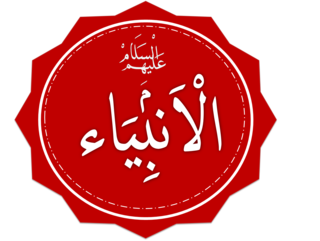
Aedile was an elected office of the Roman Republic. Based in Rome, the aediles were responsible for maintenance of public buildings and regulation of public festivals. They also had powers to enforce public order and duties to ensure the city of Rome was well supplied and its civil infrastructure well maintained, akin to modern local government.

Ilyas is a form of the masculine given name Elias or Elijah, and may refer to:
Alim is one of the Names of God in Islam, meaning "All-knowing one". It is also used as a personal name, as a short form of Abdul Alim, "Servant of the All-Knowing":

Over the centuries of Islamic history, Muslim rulers, Islamic scholars, and ordinary Muslims have held many different attitudes towards other religions. Attitudes have varied according to time, place and circumstance.
Asad, sometimes written as Assad, is an Arabic male given name literally meaning "lion". It is used in nicknames such as Asad Allāh, one of the nicknames for Ali ibn Abi Talib.
Ahad is a Middle Eastern given forename primarily used by Muslims and Jews. It is also used as a family name (surname).
Abdul is the most frequent transliteration of the combination of the Arabic word Abd and the definite prefix al / el.
Iman, Imann, Imaan, Eman, Emaan, or Imman may refer to:
Tarar is a Pakistani and Indian Hindu, Sikh and Muslim Jat surname, mainly found in the Punjab region.
Tyagi originally called Taga, is a cultivator caste who claim Brahmin status. The landholding community is confined to Western Uttar Pradesh, Haryana, Delhi and Rajasthan. They are often considered the highest of the agricultural castes. During the British Raj, they changed their name from Taga to Tyagi, and began claiming Brahmin status. In 1931, they were classified as a cultivating middle caste rather than as Brahmins, along with the Jats and Bhumihars. As of a 1990 report by the Backward Classes Commission, Government of Haryana, they were mostly engaged in farming.
The topic of Islam and children includes the rights of children in Islam, the duties of children towards their parents, and the rights of parents over their children, both biological and foster children. Also discussed are some of the differences regarding rights with respect to different schools of thought.
Qureshi is a Muslim family name. In English it has many spellings, in Arabic is spelled "قريشي", which means part of Quraish Family. The title is associate with the family of Prophet of Islam. At present, Qasai or Kasayi or Qassab who are engaged in meat cutting and selling business add this title after their name to enhance their social status.
Fazl ur Rahman or Fazl-ur-Rehman, the first element also spelled Fazal, is a male Islamic given name, meaning bounty of the Merciful One. Notable people with the name include:
Azim is one of the names of God in Islam, meaning "Great" or "Magnificent" or "Protector" Also used as a personal name, as short form of the Abdul Azim, "Servant of the Magnificent". It is used by many Sahrawi people as a surname originating from the Hassaniya Arabic.

Prophets in Islam are individuals to serve as examples of ideal human behavior and to spread God's message on Earth. Some prophets are categorized as messengers, those who transmit divine revelation, most of them through the interaction of an angel. Muslims believe that many prophets existed, including many not mentioned in the Quran. The Quran states: "There is a Messenger for every community". Belief in the Islamic prophets is one of the six articles of the Islamic faith.

Samiri or the Samiri is a phrase used by the Quran to refer to a rebellious follower of Moses who created the golden calf and attempted to lead the Hebrews into idolatry. According to the twentieth chapter of the Quran, Samiri created the calf while Moses was away for 40 days on Mount Sinai, receiving the Ten Commandments. In contrast to the account given in the Hebrew Bible, the Quran does not blame Aaron for the calf’s creation.
Rosenqvist is a Swedish surname meaning "rose branch".
Ghazali is an Arabic surname and given name, it may refer to:
This page is based on this
Wikipedia article Text is available under the
CC BY-SA 4.0 license; additional terms may apply.
Images, videos and audio are available under their respective licenses.




